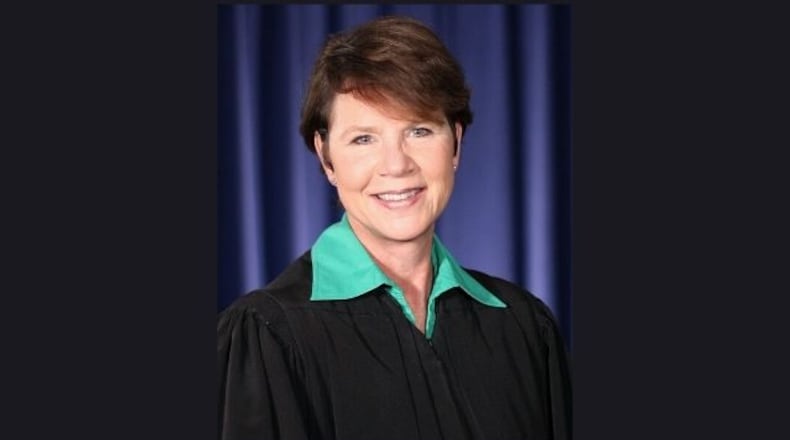“I believe in that we are limited in our role of government to say what the law is, based on its plain language. If we find it unconstitutional and that the General Assembly has overstepped its bounds and has violated the commandments of the constitution, we are the protectors and the guardians of our constitutional rights and we strike that law down,” Kennedy said. “It doesn’t mean we re-write that law. It means it goes back to the General Assembly.”
She also points to her work writing six continuing legal education presentations for attorneys and has pushed a program called Lean Forward to educate judges, probation and parole officers and others in the criminal justice system about the needs of veterans entangled in the court system. The program seeks to connect veterans to services for mental health and drug treatment programs.
Chief Justice Maureen O’Connor is pushing for better collection of statewide criminal justice sentencing data to determine if racial disparities or other inconsistencies exist from court to court. Kennedy is not convinced that building out a statewide system is affordable or advisable. A smarter and quicker approach might be to start a pilot program to collect data in seven counties with the highest percentages of minority residents, she said.
Kennedy declined to pledge that she’d recuse herself from cases in which a party had donated more than $1,000 to her campaign in the previous 12 months. Instead, she said current limits on judicial campaigns — how much and when they may receive contributions — are “commensurate with being reasonable” and judicial conduct codes already provide guidance for recusals.
New rules governing how legislative and congressional district maps will be drawn in 2021 gives the high court jurisdiction over any challenges.
Kennedy said she hopes the map makers come to an amicable resolution so no challenge comes before the court. But how would she approach such a challenge if it were before her? “I am an individual that exercises judicial restraint,” she said.
Kennedy brushed aside questions of whether the Democratic or Republican control of the court matters. Instead, she said voters should consider judicial candidates’ experience and legal philosophy when casting their ballots.
“When I look at judicial candidates, I want to know what kind of legal thinker they will be. I want someone who is going to exercise judicial restraint. That is really how this country was founded and what keeps the republic alive,” she said.
Kennedy, who has been on the high court since 2012, said she is a strong backer of public records and open meetings laws.
Media law attorney John Greiner wrote an April 2019 article for the Ohio Coalition for Open Government that the supreme court delivered four decisions in 2018 that would enhance the public’s right to know. Greiner noted that Kennedy authored the majority opinion in all four cases and he said “it seems Justice Kennedy has decided to take a leading role in the area of transparency.”
Kennedy would not comment on whether she has ambitions to become chief justice when O’Connor leaves the court. “I can only look at this race in front of me.”
Sharon Kennedy
Hometown: Liberty Twp.
Family: Single, no children
Political Party: Republican
Political Experience: Ohio Supreme Court justice, 2012 to current; Butler County Common Pleas Court Domestic Relations judge, 1999-2012; attorney since 1991; former Hamilton police officer.
Education: Bachelor’s and law degrees from University of Cincinnati.
About the Author


